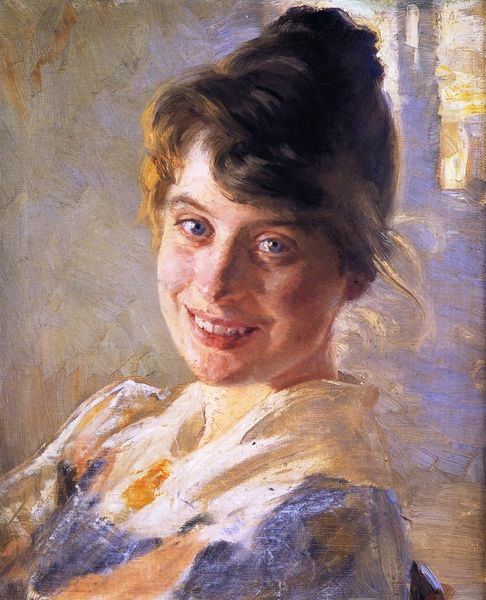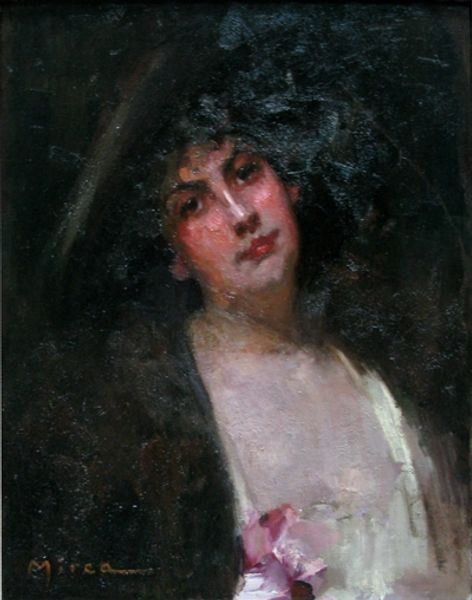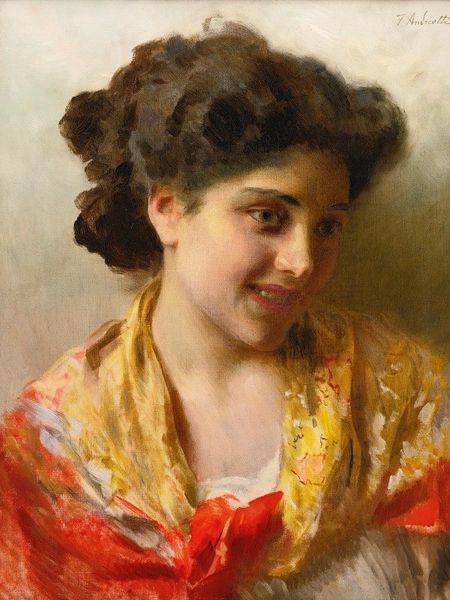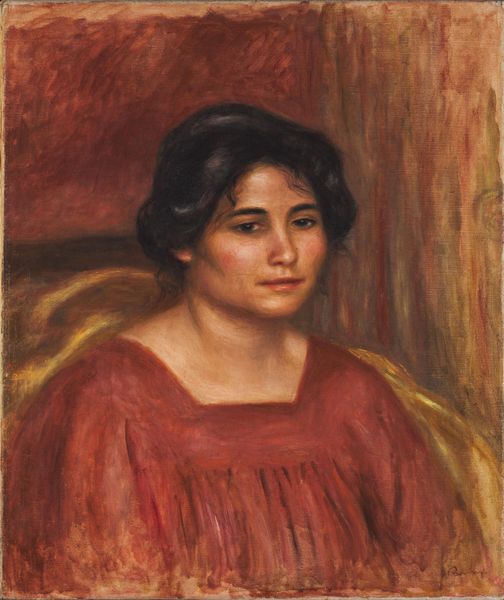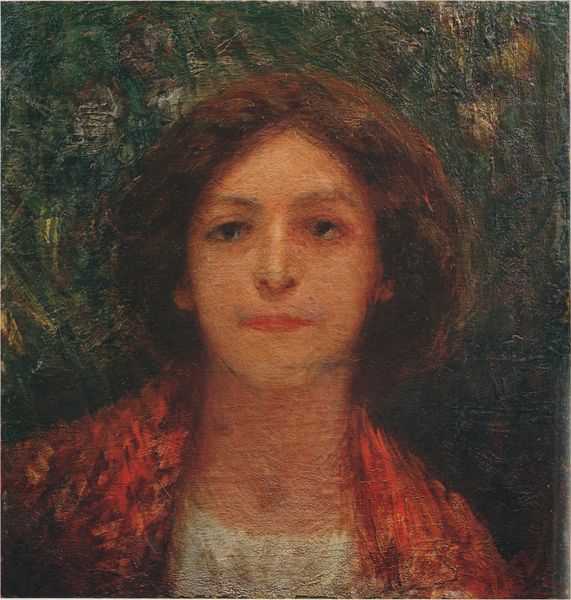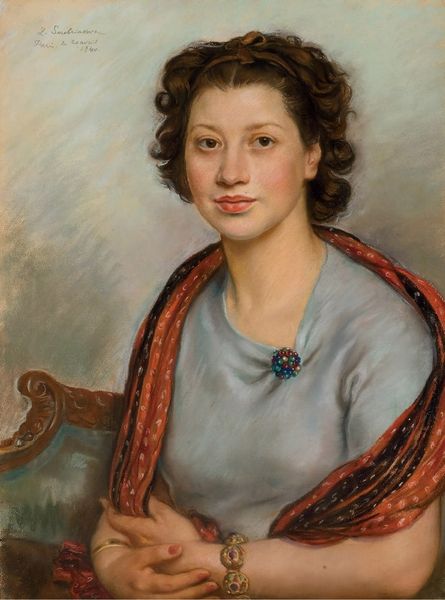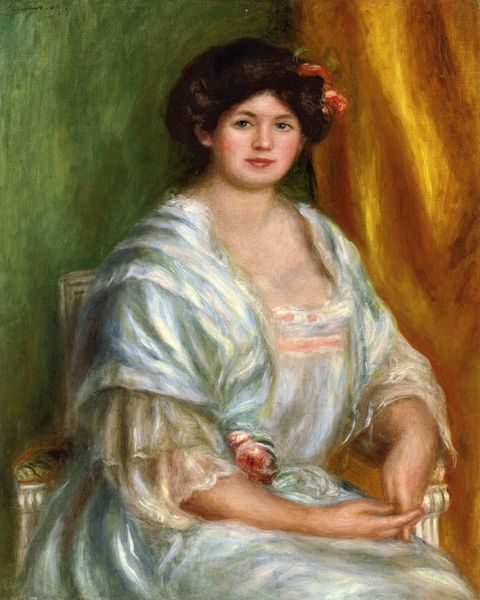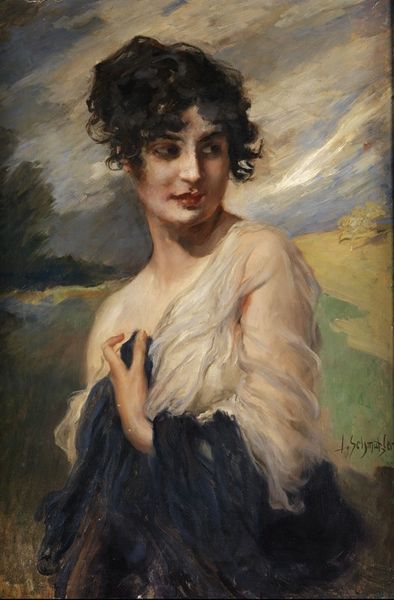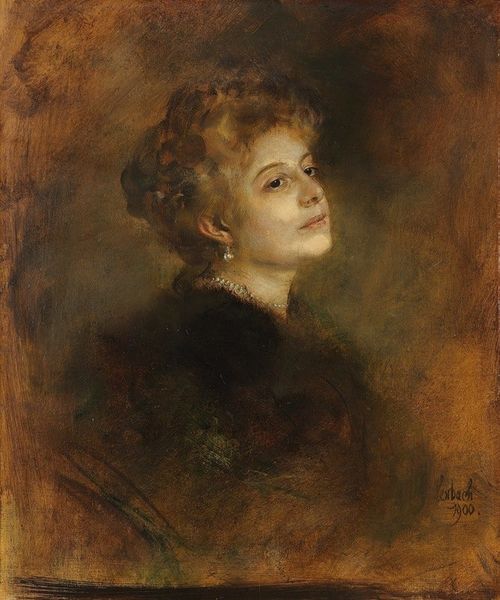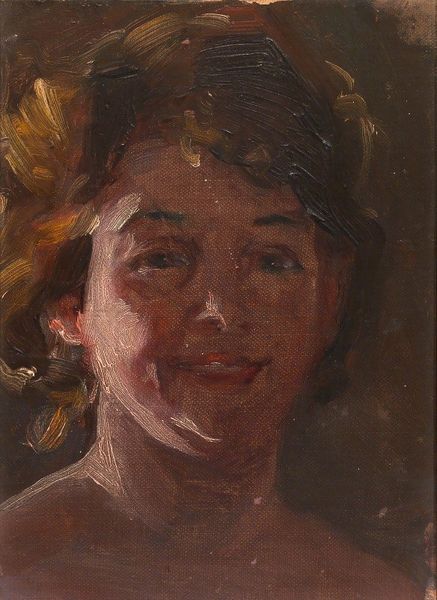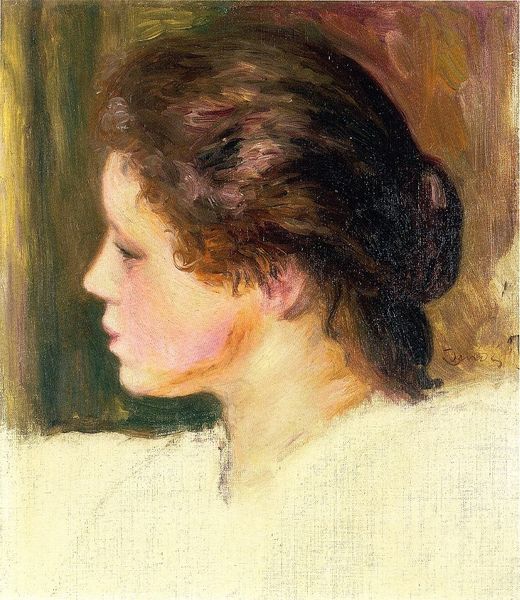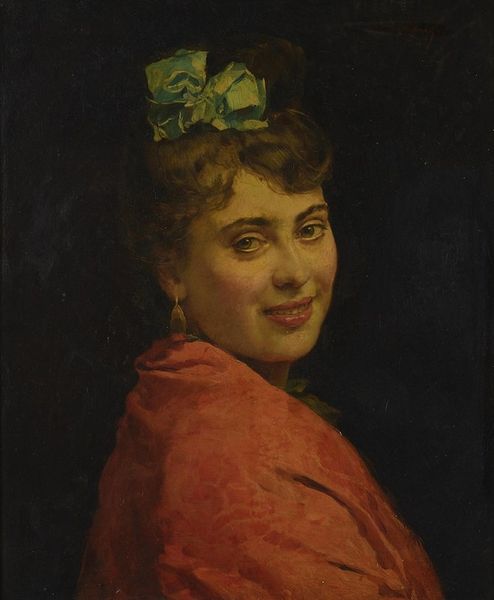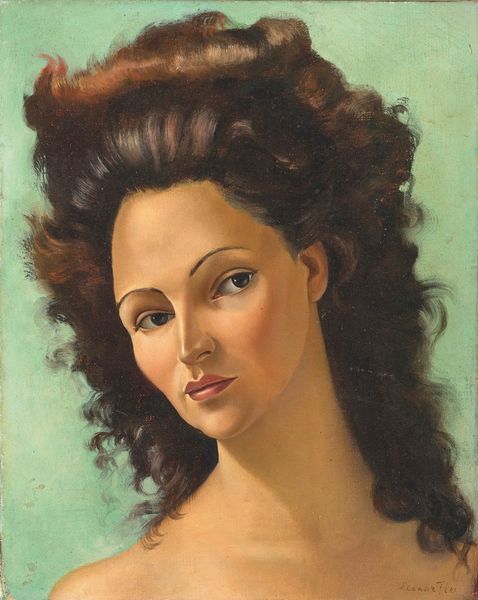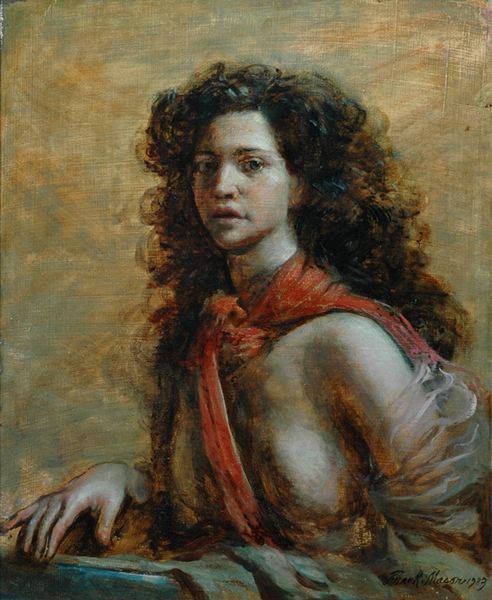
painting, oil-paint, impasto
#
portrait
#
painting
#
oil-paint
#
oil painting
#
impasto
#
genre-painting
#
facial portrait
#
portrait art
#
fine art portrait
#
realism
Dimensions: 45.5 x 37 cm
Copyright: Public domain
Editor: Here we have "Portrait of a Young Girl" by Vincenzo Irolli, an oil painting with very visible brushstrokes. It’s hard to pin down the exact date. I’m struck by how joyful she seems, almost radiant. What can you tell me about it? Curator: This portrait gives us a window into the socio-cultural fascination with youth and beauty that pervaded the art world during the late 19th and early 20th centuries. Consider the context: portraits of young women were often commissioned or created for exhibition. Who was the intended audience? Editor: Well, if it wasn't a private commission, probably the art-viewing public, maybe hoping to evoke a certain... ideal? Curator: Exactly. Irolli capitalizes on this. Her engaging smile is deliberately designed to be attractive. But, consider the title; “Portrait of a Young Girl.” It's strikingly generic, no specific name, turning her into an almost archetypal figure of youthful innocence and beauty. Does that impact how we, as viewers, might interact with this image today? Editor: Definitely, it makes her less of an individual and more of a…symbol, I guess? I suppose it broadens her appeal, in a way. What do you mean by "today"? Curator: Time shifts our relationship to images. Think about how such portraits are displayed, marketed, or even satirized in modern media. What power do such "types" still have? Do museums re-inscribe this, or critique it? Editor: That's really interesting! I never thought about how much the cultural expectations and the context where an image lives changes what it actually *means*. It shows how history constantly rewrites our understanding of art. Curator: Precisely. Thinking about the cultural context invites us to reconsider not just what the artist intended, but how the portrait continues to communicate with, and even shape, contemporary society.
Comments
No comments
Be the first to comment and join the conversation on the ultimate creative platform.
